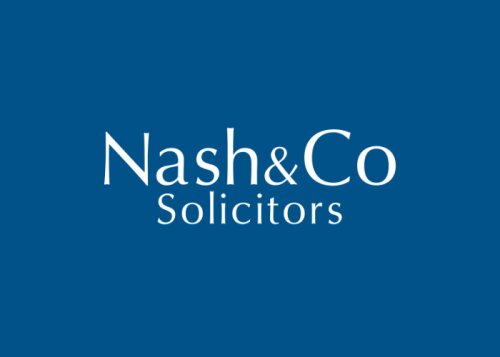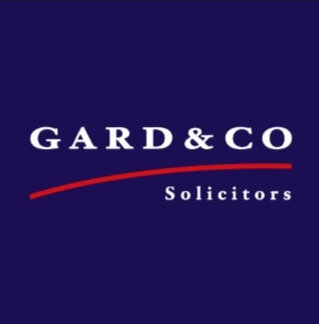Best Drugs & Medical Devices Lawyers in Plymouth
Share your needs with us, get contacted by law firms.
Free. Takes 2 min.
List of the best lawyers in Plymouth, United Kingdom
About Drugs & Medical Devices Law in Plymouth, United Kingdom
Drugs and medical devices law in Plymouth, United Kingdom, is governed by a combination of UK national legislation, regulations, and guidance from both the government and regulatory bodies. These laws address the development, testing, approval, distribution, marketing, and usage of pharmaceuticals and medical devices to ensure public safety and product efficacy. In Plymouth, as in the rest of the UK, manufacturers, healthcare professionals, patients, and businesses must comply with strict standards to avoid legal repercussions and ensure proper healthcare outcomes.
Why You May Need a Lawyer
There are several situations where legal advice in the field of drugs and medical devices may be necessary in Plymouth. Common scenarios include:
- Injury or harm caused by defective drugs or faulty medical devices
- Concerns about side effects or adverse reactions after taking medication or using a medical device
- Disputes with manufacturers or healthcare providers regarding product liability
- Business regulatory issues related to the import, distribution, or sale of pharmaceuticals or medical devices
- Intellectual property concerns, such as patent or trademark issues
- Problems involving prescription errors, dosage mistakes, or mislabeling
- Enforcement action by regulatory authorities for breaches of compliance
- Medical negligence or malpractice claims
- Withdrawal or recall of products by manufacturers or authorities
- Representation in legal proceedings or compensation claims involving drugs or medical devices
Local Laws Overview
Plymouth operates under the broader UK regulatory framework for drugs and medical devices, but local NHS trusts, healthcare providers, and businesses must also observe specific regional practices. The Medicines and Healthcare products Regulatory Agency (MHRA) is the primary body responsible for regulating medicines and devices. Key legal aspects include:
- Stringent requirements for the market authorisation and ongoing monitoring of pharmaceuticals and devices
- Adherence to the UK Medical Devices Regulations 2002 and the Human Medicines Regulations 2012
- Clear procedures for reporting adverse drug reactions and device incidents
- Obligations for businesses to ensure proper labelling, safety data, and marketing compliance
- Specific rules surrounding recalls, withdrawals, and notifications for defective products
- Laws governing prescription, dispensing, and administration of drugs
- Local oversight by the Devon Clinical Commissioning Group and Plymouth City Council in public health matters
Frequently Asked Questions
What should I do if I think a drug or medical device has injured me?
Seek medical assistance immediately. Keep records, retain any product packaging, and report the issue to the MHRA via the Yellow Card Scheme. Consult a lawyer to assess if you may have a claim for compensation.
Who regulates drugs and medical devices in Plymouth?
The Medicines and Healthcare products Regulatory Agency (MHRA) is responsible for oversight and regulation across the UK, including Plymouth.
Can I claim compensation for harm caused by a defective drug or device?
You may be able to claim compensation if you can prove the defect caused your injury. A lawyer can help you gather evidence and navigate the claims process.
How do I report side effects or incidents involving these products?
You can report side effects or product problems through the MHRA's Yellow Card Scheme, either online or by telephone.
What responsibilities do healthcare providers in Plymouth have regarding drugs and devices?
Local providers must ensure products are used safely, reports of adverse events are promptly filed, and proper consent and information are given to patients.
Are there specific laws for medical devices versus medicines?
Yes, medicines and medical devices are regulated by different sets of legislation. Devices are governed mainly by the Medical Devices Regulations 2002, while medicines fall under the Human Medicines Regulations 2012.
What if my medication has been recalled?
Follow instructions provided by your pharmacy, GP, or local NHS body. Do not stop taking your medication without medical advice, and contact a lawyer if you have suffered harm.
Do I need a prescription for all drugs in the UK?
Not all drugs require a prescription. Over-the-counter medications are available, but certain controlled substances and potent medicines require a prescription from a qualified healthcare provider.
Can businesses in Plymouth market medical devices directly to consumers?
Businesses must follow strict advertising and marketing regulations, including avoiding misleading claims and ensuring compliance with MHRA requirements.
How soon should I seek legal advice after a problem?
You should seek legal advice as soon as possible to ensure your rights are protected, necessary evidence is preserved, and no deadlines are missed in starting a claim.
Additional Resources
For those seeking further information or support, the following resources may be helpful:
- Medicines and Healthcare products Regulatory Agency (MHRA): Main regulatory authority for drugs and medical devices in the UK
- NHS England and NHS Resolution: For clinical negligence or patient safety issues
- Citizens Advice Plymouth: Free, confidential consumer and legal guidance
- Plymouth City Council Public Health Team: Local public health information
- The Yellow Card Scheme (MHRA): For reporting side effects or incidents
- Action against Medical Accidents (AvMA): Charity supporting patient safety and justice
Next Steps
If you believe you need legal assistance with drugs and medical devices in Plymouth, begin by gathering any relevant documents, records, and evidence, such as medical reports, product packaging, correspondence with healthcare professionals, and receipts. Make detailed notes of what happened, including dates and symptoms or problems experienced. Contact a solicitor with experience in medical product liability or personal injury law as soon as possible. Many local law firms offer a free initial consultation to assess your case. Acting early will help protect your rights and improve your chances of a successful outcome.
Lawzana helps you find the best lawyers and law firms in Plymouth through a curated and pre-screened list of qualified legal professionals. Our platform offers rankings and detailed profiles of attorneys and law firms, allowing you to compare based on practice areas, including Drugs & Medical Devices, experience, and client feedback.
Each profile includes a description of the firm's areas of practice, client reviews, team members and partners, year of establishment, spoken languages, office locations, contact information, social media presence, and any published articles or resources. Most firms on our platform speak English and are experienced in both local and international legal matters.
Get a quote from top-rated law firms in Plymouth, United Kingdom — quickly, securely, and without unnecessary hassle.
Disclaimer:
The information provided on this page is for general informational purposes only and does not constitute legal advice. While we strive to ensure the accuracy and relevance of the content, legal information may change over time, and interpretations of the law can vary. You should always consult with a qualified legal professional for advice specific to your situation.
We disclaim all liability for actions taken or not taken based on the content of this page. If you believe any information is incorrect or outdated, please contact us, and we will review and update it where appropriate.











